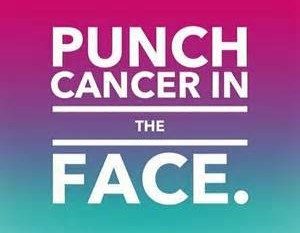So, how do we do that now with all these changes. First check with your doctor of course. If you have a history of weight training and have bone issues now due to cancer, it will be in your best interest to decrease the amount of weight that you are used to lifting. Avoid a lot of jumping and running. These are all things that I am used to so it is frustrating not to be able to do them. I get bored very quickly, so for me it is important to keep things fresh and new. I now that I can't just jump back in and do the things I used to do but I often want to do that. However, my mind and then sometimes my body will remind me that is not such a good idea.
Here are some tips from this website https://integrativeoncology-essentials.com/2013/07/how-to-begin-an-exercise-routine-for-cancer-patients-and-survivors-part-i/. I admit for me it will be hard for me to follow some of those especially "start of slow", something I have a problem doing. I am a very all or nothing person when it comes to exercise, if I can't do what I want to do I don't want to do it. However, I do know that it is very important to stay active.





